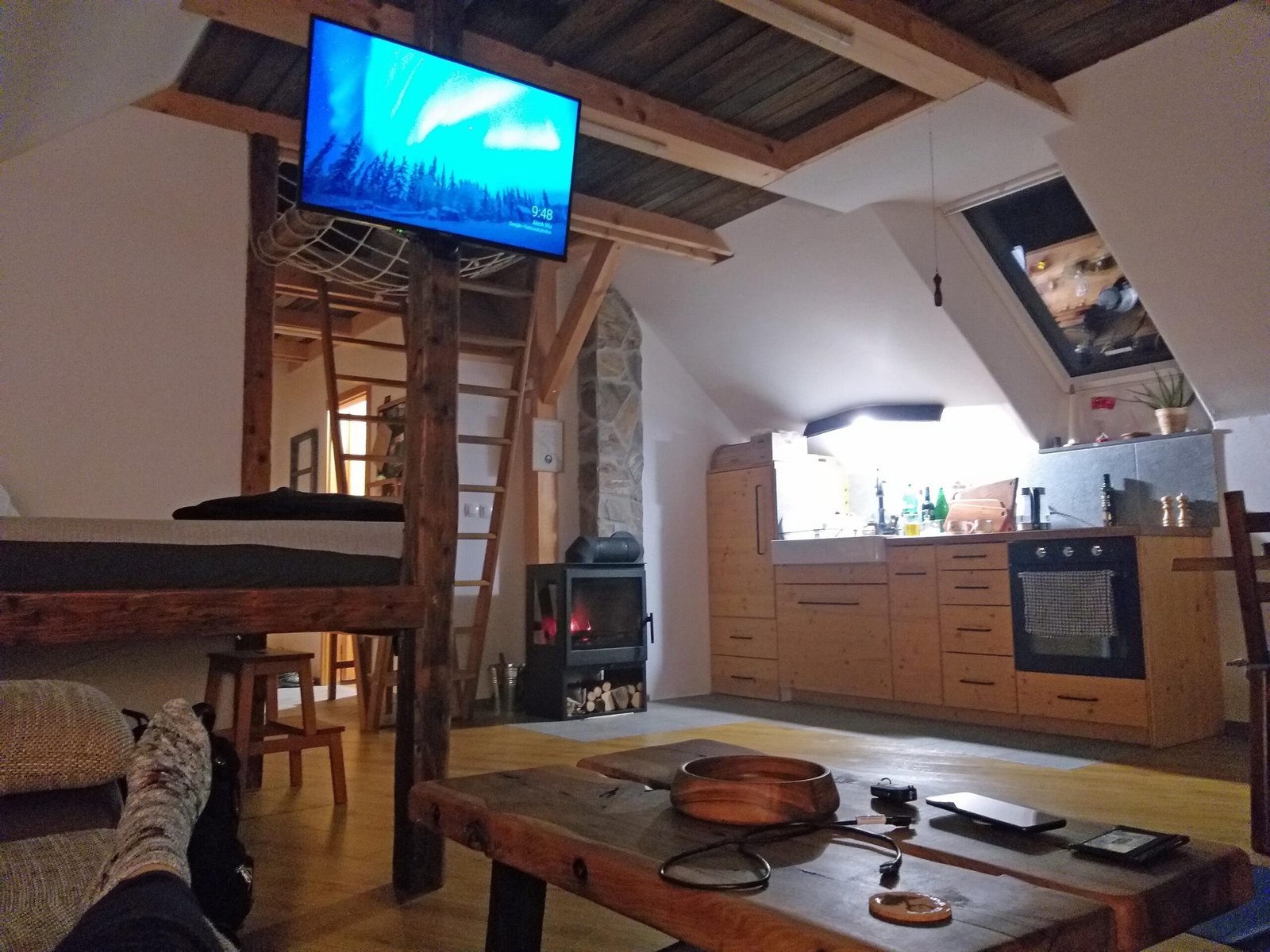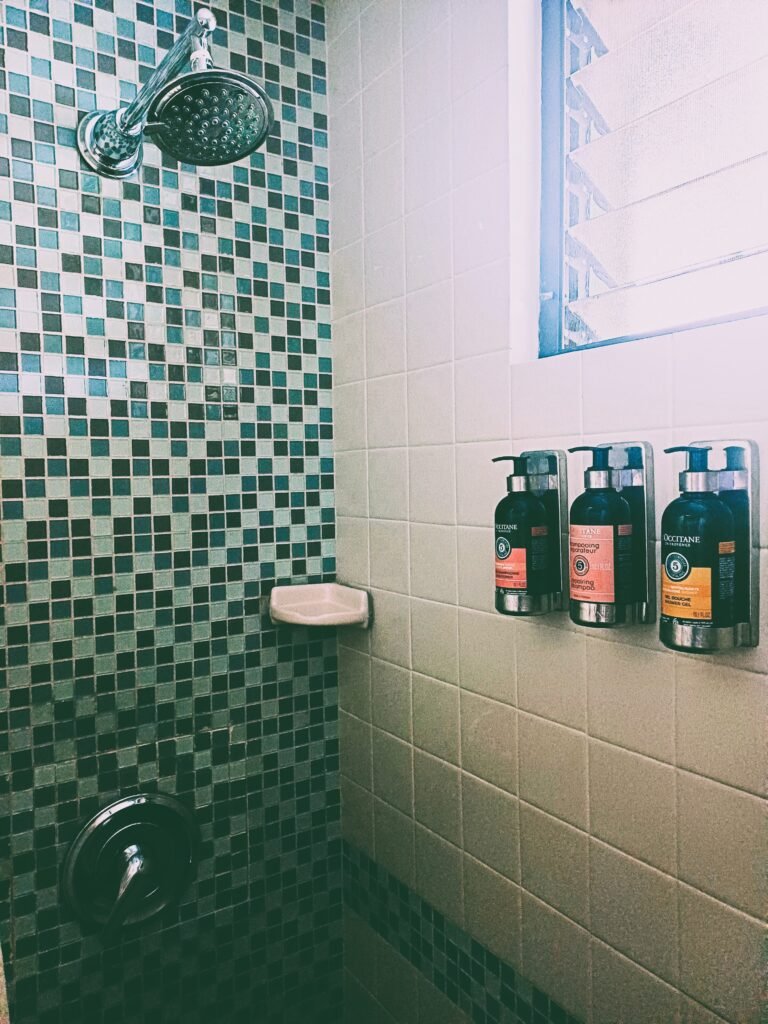From Linear to Circular:
Greening your Tourist Accommodation 101
Are you a tourist-based accommodation looking to embrace sustainability but unsure where to begin? In a world often dominated by linear economic models, transitioning to a circular mindset can seem daunting. However, by taking small steps and integrating sustainable practices into your business operations, you can not only reduce your environmental impact but also enhance your economic sustainability. Let’s explore some basic steps to kickstart your sustainability journey.
Understanding the Shift: Linear vs. Circular Thinking
Linear economic thinking has long prevailed, characterized by a linear flow of production, consumption, and disposal without much consideration for resource conservation or environmental impact. However, the circular economy model challenges this approach by emphasizing the reuse, recycling, and regeneration of resources, thus closing the loop of resource consumption and waste generation.
Start with Waste: Closing the Loop
A tangible step to kickstart your sustainability journey lies in examining your waste management practices. Rather than seeing your waste bin as the end of the road, embrace a circular mindset. Explore avenues to minimize waste and repurpose materials into production cycles. This proactive approach not only diminishes landfill waste but also preserves valuable resources.
Below are a few ideas on how to do this.
Integrating Zero-Waste Practices
Start by identifying low-hanging fruit — simple, cost-effective measures to reduce waste generation. Consider the following strategies:
REDUCE
Explore methods to reduce the volume of product packaging that ultimately finds its way into the waste bin. One approach is to minimize packaging by shifting away from single-use plastic toiletries to refillable or zero-waste alternatives, preferably featuring more natural-based ingredients.
Additionally, consider transitioning to eco-friendly cleaning products available in zero-waste or low-waste packaging. For instance, opt for laundry detergent sheets over bulky liquid detergents or cleaning product tablets housed in reusable containers.
Furthermore, contemplate opportunities to share resources rather than owning them outright. This could involve renting, borrowing, or leasing tools or vehicles, or even outsourcing services to circumvent the need for purchasing resources, particularly if they are infrequently used.
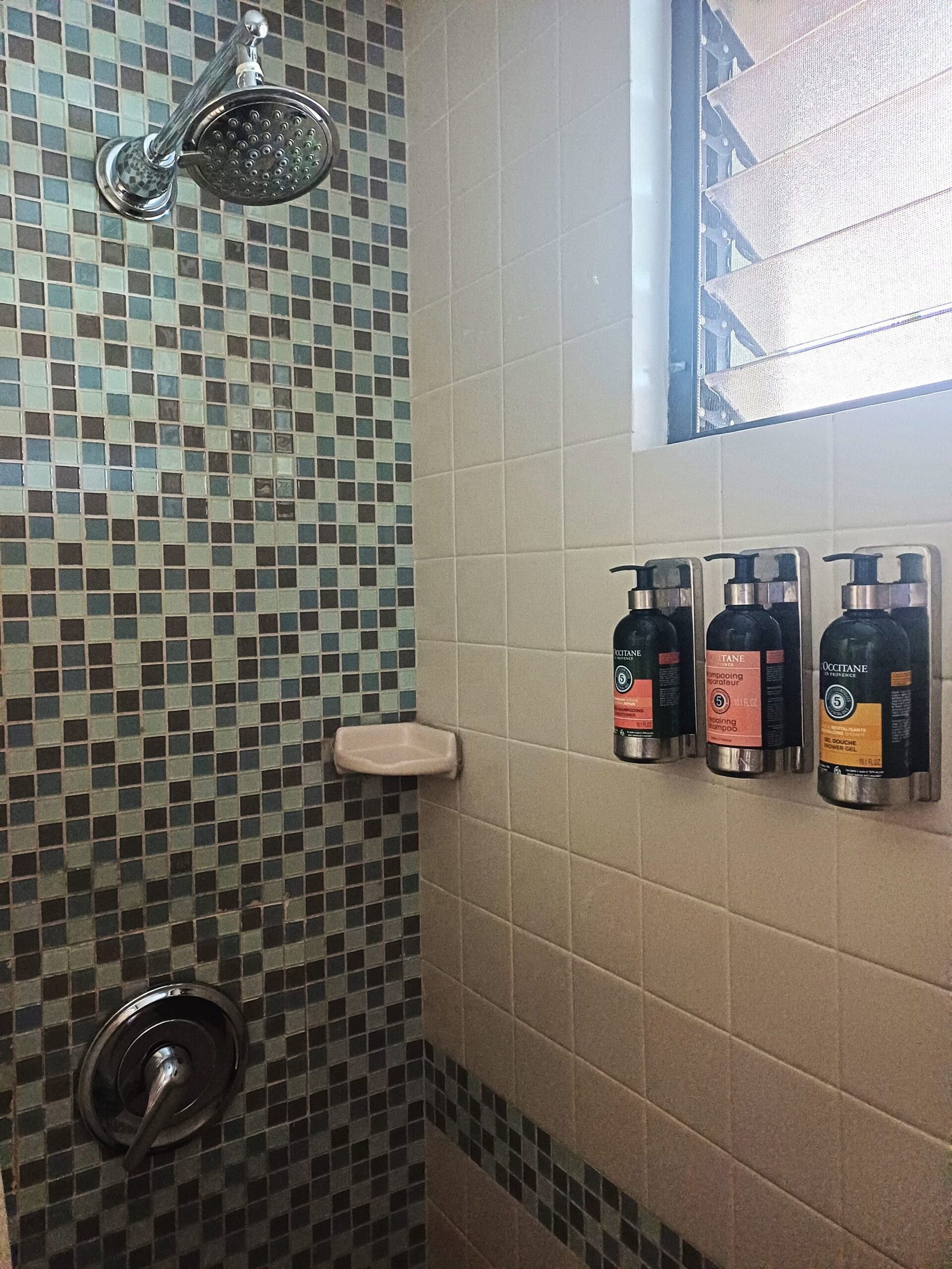
Refillable Toiletries
Consider offering guests toiletries such as shampoo, body wash, and conditioner in refillable dispenser sets. Not only do these sets convey a more professional appearance, they are also a more eco-friendly alternative to single-use plastic toiletries. They can also be more cost-effective. Consider brands like Terra Pure or L'Occitane.
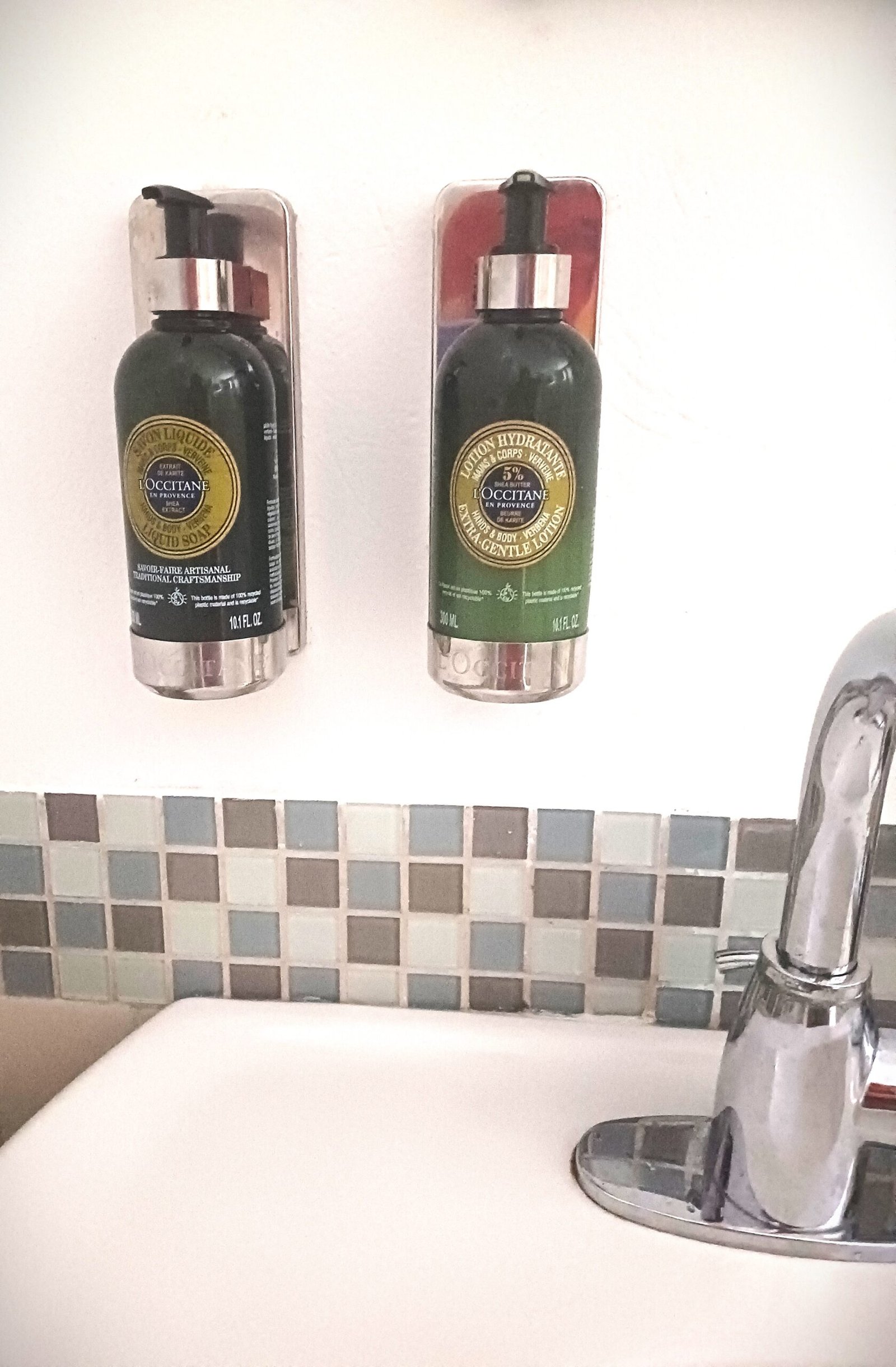
Refillable Hand Soap & Body Lotion
Incorporating refillable hand soap and body lotion into your amenities is a proactive step toward reducing plastic waste. You can explore options like purchasing renowned brands such as L'Occitane or investing in generic dispensers, which can be easily refilled with various brands according to your preference. Some recommended brands for hand soap include TerraPure, CleanCult, and BlueLand.
Refillable and Natural-Based Cleaning Products
Consider minimizing waste by opting for cleaning products that are packaged with less material. Brands like BlueLand offer refill tablets along with compatible containers, providing an eco-friendly alternative. Transitioning to natural-based cleaning products rather than toxic store brands is another sustainable choice. Many everyday household items, such as vinegar, citric acid, baking soda, or rubbing alcohol, can effectively serve as cleaning agents, further reducing reliance on conventional products.
REUSE
Reusing items is another way to reduce garbage going into the bin.
Provide guests reusable dishes and cutlery over single-use plastic options.
If you provide a coffee maker, provide one that uses a reusable coffee filter – avoiding the need for disposable pods or filters. This saves time and costs for you in the long run and ultimately leads to a better customer experience.
Provide guests access to clean, filtered potable water, to encourage them to drink the water over buying plastic bottled water.
Provide reusable shopping bags, if you offer a type of accommodation where guests are likely to do grocery shopping.
RECYCLE
Implement separate-stream recycling with clear instructions for guests. Having images and colour coded bins can make it even easier for the guests.
Consider setting up a composting system. Even a simple initiative of providing a bin for coffee grinds helps. The coffee grinds can be thrown into the garden to provide soil-enriching nitrogen.
When waste disposal is necessary, prioritize materials that are less environmentally harmful, such as cardboard over plastic.
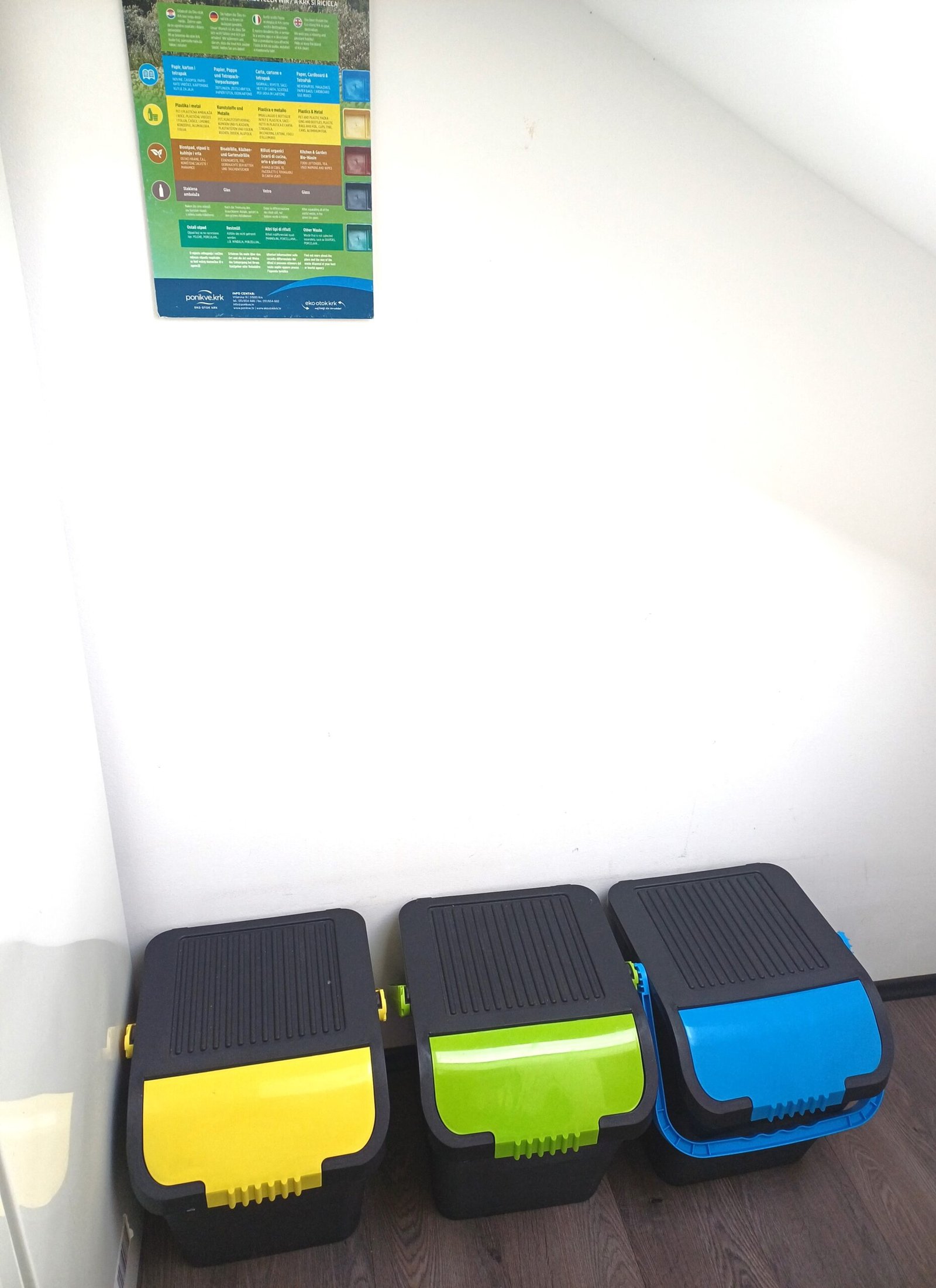
Separate-Stream Recycling System
This example of a separate stream recycling system from an Airbnb on Krk Island demonstrates a straightforward setup using color-coded bins accompanied by educational materials displayed on a poster above the bins. Stickers or images can also be placed on the bins for added clarity.
Conserving Resources: Water & Energy
Implement water-saving initiatives like incentivizing towel reuse.
Invest in drought-resistant and native plant-based landscaping.
Install energy-efficient LED lights and motion-sensor lights outside to reduce electricity consumption. An additional benefit of motion-activated lights is that they maintain more darkness, which is better for wildlife, as artificial lights can be harmful to them.
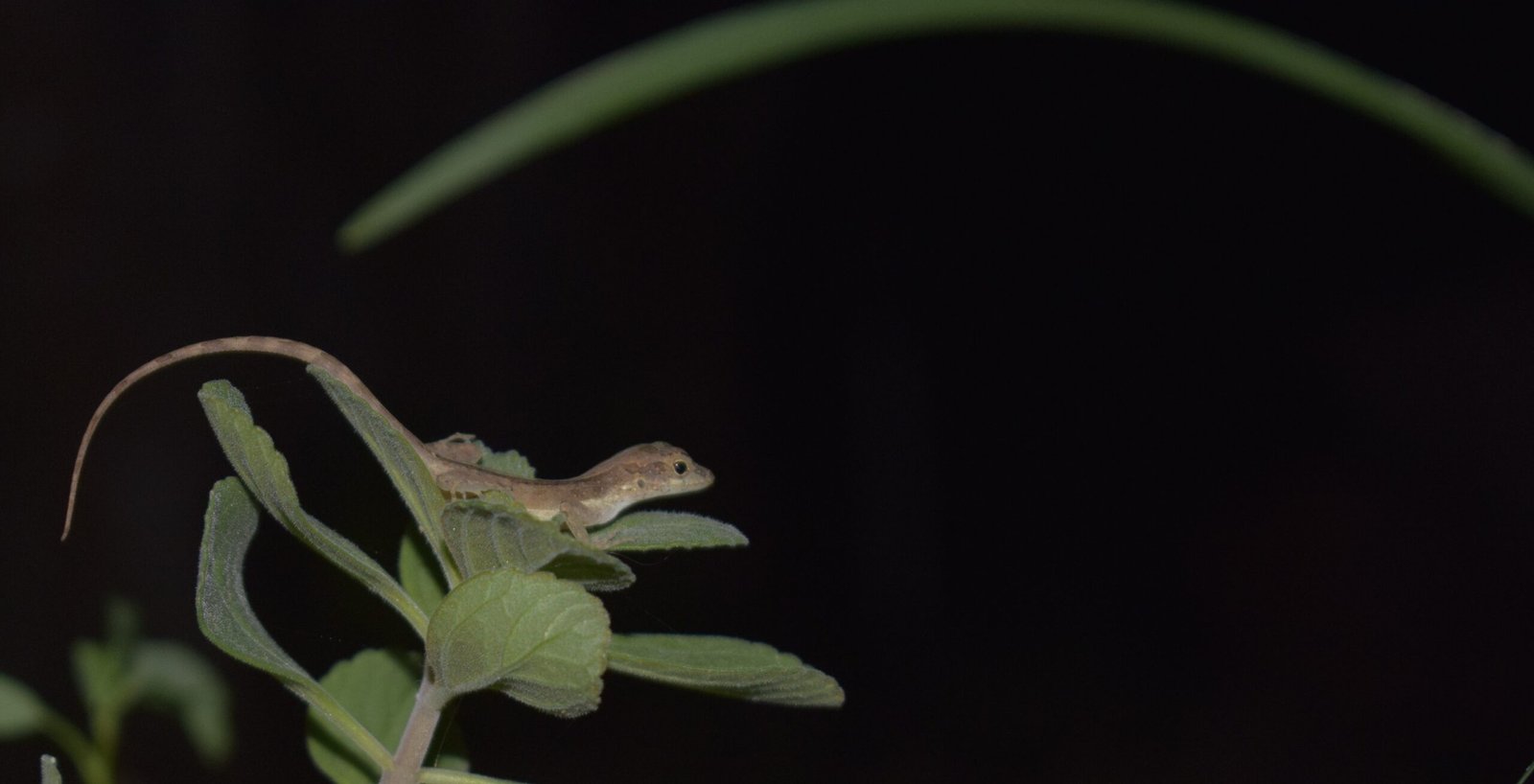
Install Motion-Sensor Outdoor Lights
Install LED or solar motion-sensor lights to preserve more darkness, allowing the garden critters to also get their beauty sleep!
CLIENT & STAFF EDUCATION
Educate guests about sustainable practices through welcome booklets and signage. This could be as simple as adding a sustainability page to your welcome book .Provide tips on local environmental conservation and cultural sensitivity, and recommend sustainably-minded stores, activities, restaurants and also local charities they can volunteer or donate to. Foster a sense of responsibility and mindfulness among guests during their stay.
If you offer incentives or encourage guests to conserve electricity and water, be sure to train your staff about these programs as well. For example, if you ask guests to turn off the air conditioning when they’re not in the room, cleaners should also be mindful to turn off the air conditioning after cleaning. Similarly, if you have a towel reuse program, ensure that the cleaning staff are aware of it.
Integration & Collaboration
Establish a sustainability committee within your company to oversee initiatives and measure progress. Having a group, even if it is just 2 people, can help with creating accountability and ensuring that sustainability initiatives happen. I recommend starting new initiatives in the slow season, when you have more time.
If you want to start measuring your waste reduction efforts, consider using key performance indicators (KPIs) such as the percentage of waste sent to landfill and the percentage of waste recycled. Tracking these metrics can help you understand the impact of your sustainability initiatives and identify areas that need more focus.
Consider collaborating with local suppliers and organizations to enhance sustainability efforts. These partnerships can also offer additional cost-saving benefits.
Seeing is Believing
Lead by example and encourage guests to participate in sustainable practices during their stay. Showcase your commitment to sustainability and inspire others to follow suit. By actively engaging guests in sustainability initiatives, you can amplify the impact and spread the message of environmental stewardship.
Embracing sustainability is an ongoing journey, but by taking these basic steps, hotel and tourist-based accommodations can make significant strides towards a more environmentally and economically sustainable future. Start small, think circular, and together, we can make a difference in preserving our planet for future generations.
If you need any further customised consulting help on your sustainability journey, feel free to reach out at info@nimabusiness.com.
